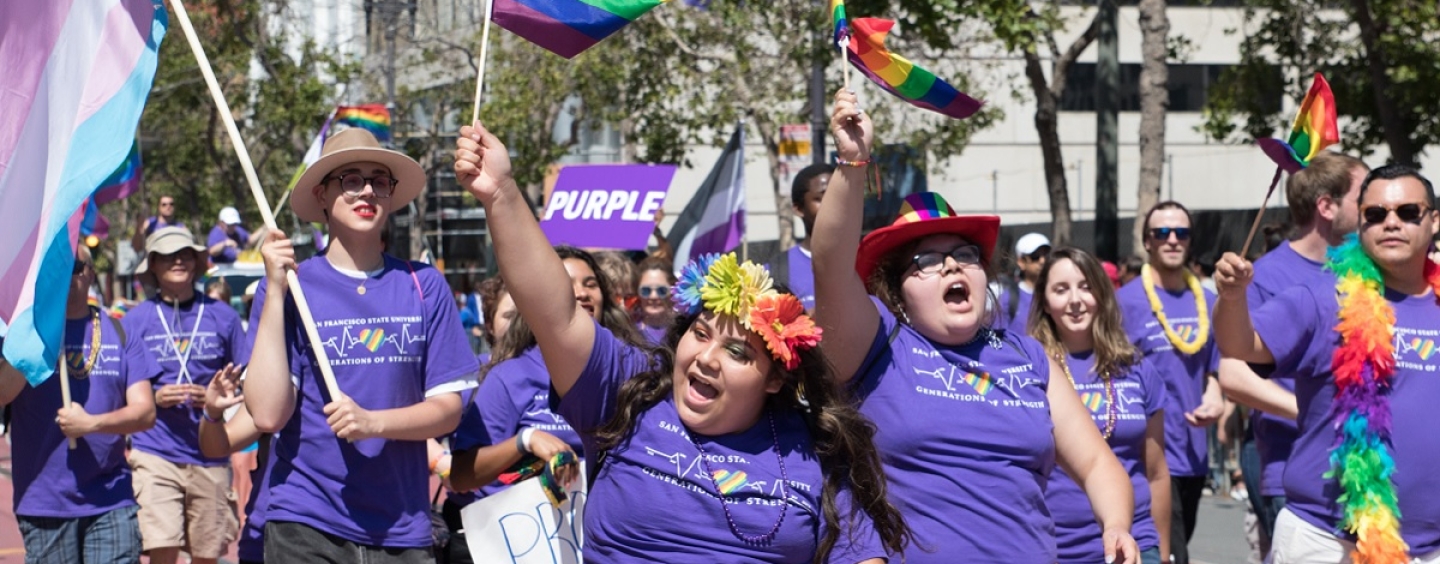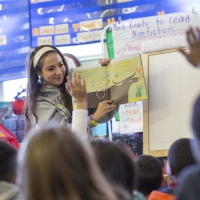Anti-LGBTQ laws claiming to protect children actually harm them, University experts say

A flood of attacks on LGBTQ rights reveals a familiar pattern, Professor of History Marc Stein and Family Acceptance Project Director Caitlin Ryan warn
As the annual celebration of Pride Month begins, state legislators across the nation have introduced a record-breaking number of bills that threaten LGBTQ rights and health. According to a June 6 statement by Human Rights Campaign, more than 525 anti-LGBTQ bills have been introduced in 41 states since the start of 2023. Of these, 76 have been enacted into law — more than twice as many as in the entirety of 2022, which set the previous record. Among them are laws that mandate censorship of school curricula to exclude mention of LGBTQ lives or experiences, roll back LGBTQ anti-discrimination protections, outlaw drag or ban gender-affirming care for transgender youth.
San Francisco State University Professor of History Marc Stein, who has written extensively about LGBTQ history, said politicians and pundits are employing the same strategies to target LGBTQ rights that they’ve used for decades: inciting “moral panics” and framing the issue as one of protecting children.
“In the past, cultural discourses about sexual ‘perverts’ and gender ‘deviants’ played up the innocence of youth, who were seen as vulnerable to enticement, grooming, recruitment and seduction,” Stein said. “This led, for example, to the passage of ‘sexual psychopath’ laws in many states in the 1930s, 1940s and 1950s. In the 1970s, similar dynamics led to Anita Bryant’s ‘Save Our Children’ campaign against sexual orientation anti-discrimination laws and to California’s Briggs Initiative, which targeted LGBT teachers and their allies.”
In fact, children are the most vulnerable to the messages sent by anti-LGBTQ laws, according to Caitlin Ryan, director of SF State’s Family Acceptance Project. In her work with diverse families across the country, Ryan has heard directly from LGBTQ youth and families who reported increased anxiety, feelings of hopelessness, uncertainty about the future and fear of hate-driven violence. Some of the families considered moving to other states, Ryan says, but laws have a harmful effect even across state lines.
“Hate has no borders. The impact of what the governor is doing in Florida, and what some lawmakers are doing in other states, really reverberates across the whole country. The targeted disinformation about LGBTQ lives is poisonous,” Ryan said.
Ryan and the Family Acceptance Project have conducted 22 years of research showing the impact of negative and positive messages about sexual orientation and gender identity on the health of LGBTQ youth. They found that suicide, illegal drug use and HIV infection are among the increased health risks for LGBTQ youth who receive negative messages, especially when they are reinforced by family or caregivers.
“The laws that ban even talking about LGBTQ people tell children and adults that these identities are so unspeakable, we can’t even talk about them in front of children. They spread distortions about LGBTQ identities and who LGBTQ people are, and they dehumanize our lives,” Ryan said.
Ryan points out that “don’t say gay” laws prevent LGBTQ children from discussing their identities and their lives in the very place where they do the most socializing, and this may inflict long-lasting damage. According to a Family Acceptance Project study, children who came out in school were shown to have better social adjustment and mental health as young adults than those who hid their sexual orientation or gender identity.
Anti-LGBTQ laws also endanger the providers and teachers whose support has been a lifeline to LGBTQ youth and who now must consider their own legal jeopardy. Ryan believes that culturally relevant education and guidance, such as that developed by the Family Acceptance Project, must be made available to families, caregivers, teachers and providers to help them understand the profound impact that their response to LGBTQ identity has on a child’s health and well-being.
“This is essential, especially now, in this increasingly hostile environment,” Ryan said.
Learn more about how SF State supports its LGBTQ students, faculty and staff.
Tags



